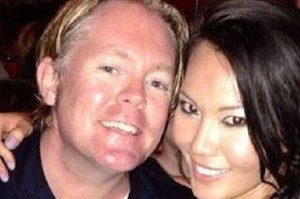–Guest post by Philip Merry, Global Leadership Academy and CQ Certified Facilitator
British wealth investor Anton Casey recently caused a firestorm when he posted a picture of his son on the MRT (local rail system) with the caption: “Daddy where is your car and who are all these poor people?” He later posted a picture of his son in a silver Porsche with the caption: “Normal service can resume, once I have washed the stench of public transport off me.”
The Singapore public responded angrily and Foreign Affairs Minister K. Shanmugam described the posts as “deeply offensive“. Mr. Casey and his firm, Crossinvest Asia parted ways, and the company issued a statement saying Casey’s comments went against “our core corporate and family values that are based on trust, mutual understanding and are respectful of diversity“. Mr. Casey and his wife, former Miss Singapore and son fled to Perth saying they had received death threats.
Having spent the last 24 years helping people live together better and understand cultural conflicts, I have a particular understanding of the recent furore in Singapore. I too am a Brit, married to a Singaporean and I’ve lived in Singapore for 24 years.
Was Mr. Casey’s behaviour reprehensible? Absolutely. Were Singaporeans correct to be upset? Absolutely. Does every culture (including Singapore) have ethnocentric and rude people? Absolutely. This case is a prime example of the type of behaviour from expats that causes outrage to host cultures. There are many such examples. PR executive (yes PR) Justine Sacco was sacked in 2013 following the upset she caused to a whole continent with her post on Twitter: “Going to Africa. Hope I don’t get AIDS. Just Kidding. I’m White!”
Let’s not underestimate Casey’s rudeness. This was not something said in the heat of a discussion, it was not a mistake made while in the middle of a sales pitch or while discussing an important project. This was active behaviour where he chose to post offensive statements. Singaporeans, a government minister and his employers have responded in an appropriate way. He has asked for forgiveness. Twice.
Why did his words cause such outrage? It’s because this was a reminder of a colonial behaviour that many Singaporeans have experienced. And this is not just a Caucasian issue. I know countless stories of other cultures insulting Singaporeans in subtle and not so subtle ways, like when patronizing foreigners tell Singaporeans, “Your English is sooooo good“.
To me this is a prime example of the need for enhanced cultural intelligence (CQ) for Singaporeans and non-Singaporeans alike. Although it may upset some Singaporeans to hear, let’s not imagine that Singaporeans don’t also insult other cultures when they venture abroad. I have worked with many regional cultures that complain about the “ugly Singaporean”. Diversity programs can involve learning the facts and figures about a country, but the cultural intelligence I’m talking about is not just awareness of other cultures. Awareness alone does not help with face-to-face interactions. Understanding that your new culture is collectivist, for example, satisfies the brain but does not help with day-to-day behaviour and it is behaviour that needs to change. We need to go beyond cultural awareness – it is our cultural intelligence that needs to be developed.
Drawing upon the four CQ capabilities based upon the joint research of the Cultural Intelligence Center in the U.S. and Singapore’s Nanyang Technological University, it is likely that Mr. Casey had some understanding (CQ Knowledge) of Singaporean culture but probably had very low CQ Drive, Strategy or Action. Is it possible for him to develop the other three skills? Without knowing him this is impossible to answer because it all comes down to whether he has the desire to do so. What I can say is that when somebody has offended the host culture in such a dramatic way, it is best that the organisation reconsider before the person does any more damage.
In this global world where we all work face-to-face or online with people from different cultures, CQ can be the difference between success and failure for global leaders, teams, communities and countries. We must recognize that whether we are expats or locals, we are ALL guilty of making cross-cultural mistakes with foreigners or with our fellow citizens. These lessons also apply wherever you work in this global world.
Cultural awareness is not enough. Behavioural change and cultural intelligence are essential for expats and their families to succeed.


Comments are closed